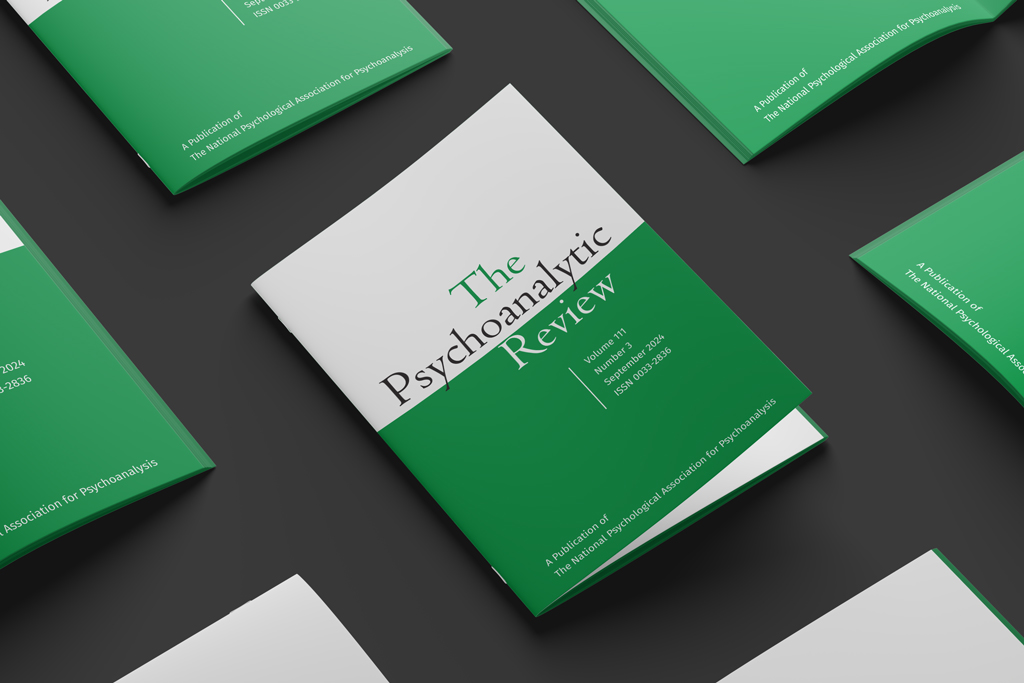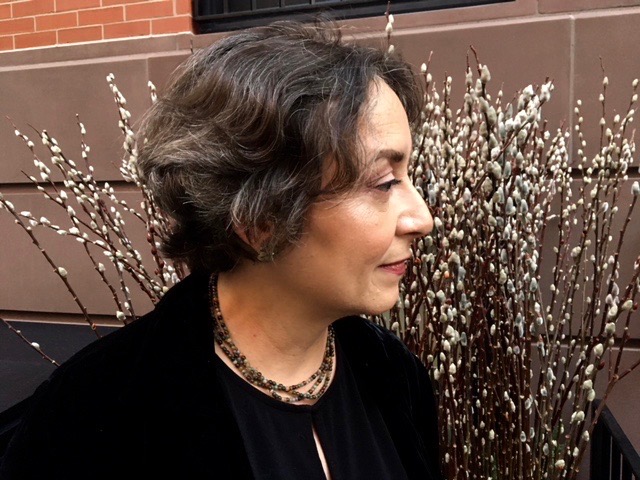The First Psychoanalytic Journal in the United States
THE REVIEW / ABOUT

MORE THAN 100 YEARS OF CONTINUING PUBLICATION
The Psychoanalytic Review has a rich history spanning over 100 years. Founded in 1913 by William Alanson White and Smith Ely Jelliffe, it is the first psychoanalytic journal in the United States and the first printed in English, making it the oldest continuously published psychoanalytic journal in the world. Since its inception, the Review has been an open platform for all psychoanalytic perspectives. As the founders stated in 1914: “The Review aims to be catholic in its tendency, a faithful mirror of the psychoanalytic movement, and to represent no schisms or schools, but a free forum for all” (Jelliffe, S. E., 1914, p. 444). Over the years, the Review has played a vital role in promoting and reflecting the evolution of psychoanalysis.
In 1958, The Psychoanalytic Review became the official journal of the National Psychological Association for Psychoanalysis (NPAP) following a merger between NPAP’s official journal at the time, Psychoanalysis, founded by Theodor Reik in 1952, and the original Psychoanalytic Review.
The Psychoanalytic Review publishes six issues per year, featuring peer-reviewed articles on a wide range of theoretical, clinical, and cultural topics, including interdisciplinary studies that advance psychoanalytic theory and understanding of the therapeutic process. Special Issues, organized by guest editors with expertise in specific areas of psychoanalysis or related fields, are a key feature. The journal also publishes reviews of books and films relevant to psychoanalysis.
The Review is part of the Psychoanalytic Electronic Publishing (PEP) archive, with nearly all volumes from 1913 up to the last three years accessible to PEP-WEB subscribers. Current issues and volumes from 2001 onward are available online through Guilford Publications.
The Psychoanalytic Review operates as an autonomous journal with editorial policies independent of its sponsoring organization, NPAP.

Aleksandra Wagner was appointed interim editor of the review in May 2023. She is an Assistant Professor of Sociology at the New School and holds a PhD in Sociology from the CUNY Graduate Center, where she also completed the Women’s Studies Certificate Program. Additionally, she earned BAs in Musicology and Comparative Literature and Philosophy from the University of Sarajevo. A licensed psychoanalyst, Wagner is a member of The National Psychological Association for Psychoanalysis as well as the editorial boards of The Psychoanalytic Review and Discourse of Sociological Practice. Her publications include The Edinburgh International Encyclopaedia of Psychoanalysis (Edinburgh University Press, 2006, Executive Editor) and chapters in the edited volume Edith Jacobson: Life, Work, Memories (Psychosozial Verlag, 2005).
Public subscriptions are available through Guilford Publications online and at 370 Seventh Avenue, Suite 1200, New York, NY 10001-1020. Phone: 1-800-365-7006 (in New York, 212-431-9800) Email: [email protected].
For NPAP members and students, a subscription to the journal (both print and online versions) is included in yearly dues and registration fees.
The Psychoanalytic Review (ISSN 0033-2836) is published bimonthly. Annual subscription rates are:
To Subscribe:
Manuscripts should be submitted electronically to the Editor at [email protected]. For complete instructions on manuscript submissions, please refer to the submission guidelines.
The journal will not consider any material previously published on the internet, including self-published works, pay-per-view sites, or research sites affiliated with universities or societies, due to the current challenges in enforcing copyright and publication rights.
After a paper is published in the print edition of The Psychoanalytic Review, there is a six-month embargo on posting the paper online on any author site, pay-per-view site, or university/society research site. After six months, permission is granted to republish the paper online, provided credit is given to the Review for its original publication, including the year, volume, and page numbers.
For further information or to submit your manuscript, please contact: [email protected]
Alan J. Barnett, Ph.D.
Editor Emeritus, The Psychoanalytic Review (2008-2016)
Marco Conci, M.D.
German and Italian Psychoanalytic Society, Co-editor,
International Forum of Psychoanalysis
Joan Copjec, Ph.D.
Department of Modern Culture and Media, Brown University
Michael Eigen, Ph.D.
Editor Emeritus, The Psychoanalytic Review (2004-2008)
Patricia Gherovici, Ph.D.
Pulsion: The International Institute of Psychoanalysis
and Psychoanalytic Psychosomatics
Miguel Angel Gonzales-Torres, M.D., Ph.D.
Centro Psicoanalitico de Madrid,
University of the Basque Country, Bilbao, Spain
Nicolas Gougoulis, M.D.
Société Psychanalytique de Paris
Jonathan House, M.D.
Founder and Publisher, Unconscious in Translation
Nancy McWilliams, Ph.D.
Visiting Professor Emerita, Graduate School of Applied
and Professional Psychology, Rutgers, The State University of New Jersey
Michael O’Loughlin, Ph.D.
Derner School of Psychology, Adelphi University,
Co-editor, Psychoanalysis, Culture & Society
Arnold D. Richards, M.D.
Founder and Publisher, International Psychoanalytic Books
Peter L. Rudnytsky, Ph.D.
Department of English, University of Florida
40 West 13th St. New York, NY 10011
Monday-Friday
9:00 AM – 5:00 PM (EDT)
+1 (212) 924.7440
[email protected]rg